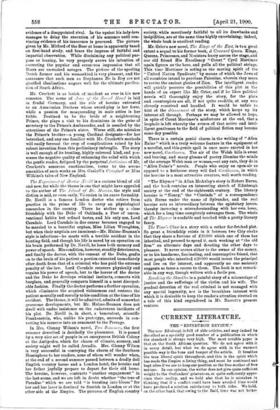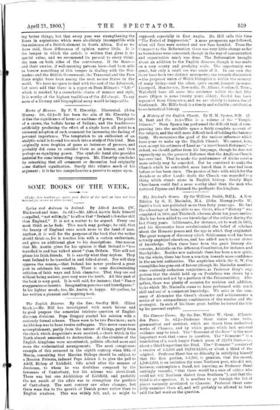CURRENT LITERATURE.
THE "EDINBURGH REVIEW."
The new Edinburgh is full of able articles, and may indeed be described as a specially good number of a publication in which the standard is always very high. The most notable paper is that on the South African question. We do not agree with it in every detail, but what we do agree with in the warmest possible way is the tone and temper of the article. It breathes the true liberal spirit throughout, and this is the spirit which has made the Empire a living thing, and must be continued and kept alive if we are to keep our position as the free mother of free nations. In our opinion, the writer does not give quite sufficient weight to the Outlanders' grievances, or quite sufficiently appre- ciate their reality, and we hold also that he is mistaken in thinking that if a conflict could have been avoided time would have produced a solution satisfactory to both sides. We hold, on the other band, that owing to the Raid, time was not brinc?- lug better things:, but that every year was strengthening the Boers in aspirations which were absolutely incompatible with the existence of a British element in South Africa. But as we have said, these differences of opinion matter little. It is the temper in which the article is written that gives it its special value, and we recommend its perusal to every think- ing man on both sides of the controversy. If the Boers— and their unwise, if well-meaning patrons here—had been able to borrow something of this temper in dealing with the Out- landers and the British Government, the Transvaal and the Free State might have been among the most secure States in the world. We have no space to deal with the rest of the Edinburgh, but must add that there is a paper on Dean Milman's " Life " which is marked by a remarkable charm of manner and style. It is worthy of the highest traditions of the 1%1;s/etre/L. To say more of a literary and biographical essay would be impossible.



































 Previous page
Previous page